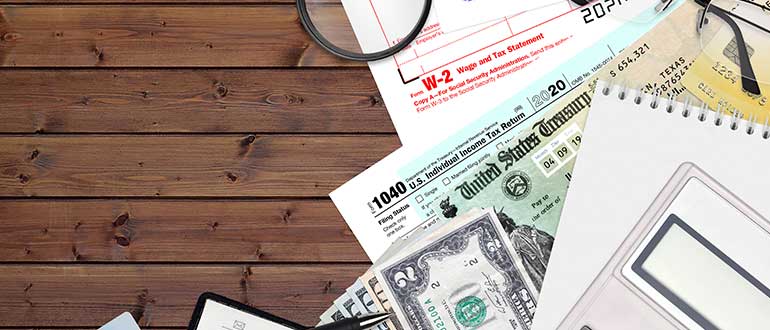
Tax deeds and tax liens are two of the most common taxes collected by local, state, and federal government entities. In this blog, you’ll learn the critical differences between a tax deed vs. tax lien and the advantages and disadvantages of each.
What Is a Tax Deed?
A tax deed is a document issued by a governmental body that grants property ownership to the government when a taxpayer cannot pay the taxes owed on it. The deed is usually issued after the property has been sold at a tax deed sale, and the government will then become the legal owner of the property. The government may then choose to resell the property to a new owner or keep it as part of its portfolio.
What Is a Tax Lien?
A tax lien is a claim placed on a property by a governmental body when the taxpayer has failed to pay taxes. The lien essentially gives the government a legal right to the property until the taxes are paid. The government can then sell the lien to a private investor who can collect the taxes owed. They may also have the right to take ownership of the property if the taxes remain unpaid.
Advantages and Disadvantages of Tax Deeds
Tax deeds can provide a steady stream of passive income and the potential for capital appreciation. However, like any investment, tax deeds come with their own set of advantages and disadvantages. We will explore three of tax deeds’ most common advantages and disadvantages.
Advantages
- Tax Deeds are Secure: One of the main advantages of investing in tax deeds is that the government backs them. This means that if the property owner doesn’t pay their taxes, the government will step in and take possession of the property. This ensures investors are protected if the owner defaults on their taxes.
- Low Upfront Investment: Tax deeds require relatively low upfront investment compared to other real estate investments. Investors may have to pay an initial fee to purchase the deed. Still, the costs associated with these investments are usually much lower than those related to purchasing a traditional piece of real estate.
- High Returns: Tax deeds can provide investors with very high returns. Depending on the location and the sale price of the deed, investors can expect to make anywhere from 10%–50% returns on their investment. This can be a great way to generate passive income and build wealth over time.
Disadvantages
- Long Time Frame: Investing in tax deeds can take a long time to pay off. Depending on the property’s location and the deed’s sale price, it could take several years for investors to see a return on their investment.
- Lack of Information: Investors may have difficulty finding reliable information about their investment property. Since tax deeds are not as widely known as other forms of real estate investments, it can be difficult to find accurate information about the property.
- Lack of Liquidity: Another disadvantage of tax deeds is that they are not very liquid. If investors need to sell their deeds quickly, they may be unable to since there is no large market for tax deeds.
Advantages and Disadvantages of Tax Liens
Here are the advantages and disadvantages of tax liens that you should consider before deciding whether to pursue them to collect unpaid taxes:
Advantages
- Security: Tax liens offer the government a secure way to collect unpaid taxes. A lien is a legal claim on a property that can be used to ensure that the government gets what it is owed. This can be important if the taxpayer is not likely to pay voluntarily.
- Effectiveness: Tax liens are an effective way to collect unpaid taxes. They provide a powerful incentive for taxpayers to pay their taxes, as they can lead to the seizure of a property if the taxes remain unpaid.
- Protection of Other Creditors: It can also protect other creditors from having their claims on a property superseded by the government’s claim. This can be important if the taxpayer has other creditors owed money.
Disadvantages
- Costly and Time-Consuming: Tax liens can be costly and time-consuming for the government. It can take a long time to collect unpaid taxes, and the government may have to pay for legal fees and other costs associated with the lien.
- Credit Damage: Tax liens can also damage a taxpayer’s credit score, making it more difficult for them to obtain credit in the future. This can be especially problematic for those struggling to pay their taxes.
- Unfair to Taxpayers: Tax liens can sometimes be unfair to taxpayers. For example, if taxpayers cannot pay their taxes due to financial hardship, the lien can make it even more difficult for them to get back on their feet.
